The Head and Neck team care for patients with cancers of the mouth, throat, voicebox, nose and nasal sinuses, ear, salivary glands and thyroid gland. They are a large team consisting of surgeons, oncologists, consultant nurse & clinical nurse specialists, cancer support worker, dieticians, speech and language therapists, radiologists, pathologists, consultant radiographer and therapy radiographers.
Contact us:
If you have any questions or concerns at any time, you can contact the specialist nurses on 01772 522229 or 07415 229 769
A voicemail service is available for non-urgent and out of hours messages and the team will aim to return your call within one working day. You can also email us on HeadandNeckCNS@LTHTR.NHS.uk
Understanding why you have been referred to hospital
Your GP has asked for you to have an urgent appointment or test because you have displayed symptoms which may be caused by cancer
Whilst it is unlikely that you have cancer it is very important that you are seen by a specialist as soon as possible.
The suspected cancer faster diagnosis system has been introduced across the country so that patients with symptoms that could be caused by cancer are seen by a specialist quickly.
Most patients referred under this system turned out not to be diagnosed with cancer, but early diagnosis can increase the success rate of many cancer treatments.
What happens once you have been referred
Your GP will send your referral to Lancashire Teaching Hospitals.
If your GP gives you a blood test performed as part of your referral you will need to arrange to have a blood test through your GP surgery before you attend your first hospital appointment. These blood tests are required as soon as possible for diagnostics to be arranged at the hospital.
If you are unable to access a blood clinic within 24 to 48 hours, then please use the urgent walk-in clinic at Royal Preston Hospital outpatient department.
Opening hours are 08.30am to 4.30pm Monday to Friday
What to expect at your first appointment
You will be seen by an Oral & Maxillo-Facial Surgeon, ENT Surgeon or senior Nurse such as a Clinical Nurse Specialist or Nurse Consultant. You will be asked a series of questions so that the health professional can understand your problem and then you will be examined, which may include examination of your throat using a camera. In some clinics you may be referred for an ultrasound scan and receive the results later the same day. At the end of the consultation a plan will be agreed with you, which could include
1. Treatment
2. Referral for further tests such as a scan
3. Listed for an operation such as biopsies
Diagnostic Tests
Following your first consultation you are likely to require specialist investigations to assist in your diagnosis, these may include:
- Examination of the ear, neck and mouth
At your appointment your doctor might use a light to examine your mouth and a special torch to examine the ear, they will then feel the neck for abnormalities.
- Ultrasound scan of the neck
This test uses sound waves to produce a picture of your neck and lymph nodes on a computer screen. Lymph nodes are part of the lymphatic system, which helps to protect us from infection and disease.
The scan is painless and only takes a few minutes. The doctor puts some gel onto your neck and moves a small device which produces sound waves over the area. They look for any changes in the size or appearance of the lymph nodes in your neck.
- Nasendoscopy
This test can be performed in an outpatient clinic. It is a small camera that is used to look at your throat, nose, and voice box.
- Examination and biopsy under local or general anaesthetic
Biopsies from the mouth can safely be undertaken using local anaesthetic.
Examination of the of the throat and biopsies of the throat are not usually tolerated under local anaesthetic so usually are done under general anaesthetic.
In some specific circumstances, biopsies of the throat can be done in clinic with a specialised camera.
- Ultrasound and Fine Needle Aspiration for Cytology
This test uses sound waves to produce a picture of your neck and lymph nodes on a computer screen.
The scan is painless and only takes a few minutes. The doctor puts some gel onto your neck and moves a small device which produces sound waves over the area. So that any lumps in the neck can be examined in detail.
If necessary a fine needle can be placed into the lump to obtain cells. These cells are then later examined under a microscope which may help to diagnose a cancer.
- MRI scan
A MRI scan uses strong magnetic waves to produce a detailed picture of areas of your body. They are carried out by specialist clinicians called radiographers.
The scanner is a powerful magnet and you will be asked to complete a checklist about any metalwork in your body to ensure it is safe for you. You will be asked to remove all jewellery before the scan. Some people are given a special injection into the vein before the scan to help improve the quality of the images.
The scan takes approx. 30 minutes and is painless. You will be assisted to get comfortable on the flat bed and given earplugs/headphones so you can communicate with the person operating the scanner. Some people find they feel a bit claustrophobic but the clinicians are there to help you relax throughout the scan.
- Barium Swallow
A barium swallow / meal is an X-ray examination of your oesophagus (gullet) and stomach. As part of the examination barium (an X-ray dye) is used. X-rays are taken as you swallow the barium liquid to see how it passes through your oesophagus and your stomach.
The barium swallow / meal may be carried out for a variety of reasons, including difficulty swallowing (dysphagia), and allows us to assess the function of your oesophagus.
Your barium swallow / meal will be performed by a specially trained Advanced Practitioner Radiographer or a Consultant Radiologist.
- CT Scan
A CT scan uses x-rays and a computer to create detailed images of the inside of your body. They are carried out by specialist clinicians called radiographers. The scan takes 10-30 minutes and is painless. You will be asked not to eat or drink for at least four hours before the scan.
Before having your scan you may be given a special dye called a contrast to help improve the quality of the images. The contrast is injected into the vein. The scan will take approx. 30 minutes and you will be asked to lie on your back, on a flat bed whilst the bed passes through the CT scanner. It uses a small amount of radiation, which is very unlikely to harm you and will not harm anyone you come into contact with.
The scan is undertaken to examine the lungs and hard structures such as the bones in the head and neck.
Further Tests
The specialist team may ask for further tests to help with your diagnosis. These may include:
- PET Scan (Positron emission tomography)
Our PET scanner is based at our Preston site and are carried out as an outpatient.
A PET scan provides detailed 3-dimensional images of the body. They can help the team look more clearly at the area of the body being investigated and are particularly helpful for investigating cancer.
You will be given instructions by the radiographer before you attend for your scan about how you should prepare. They will advise that you wear comfortable clothing, remove all jewellery and ideally avoid any strenuous exercise for 24hrs before your appointment.
Before the scan you will be injected with a substance called a radiotracer. This can help to identify areas in the body that absorb more of the solution because they are more metabolically active, such as cancers. You will be asked to lie on a flat bed and the scanner will take pictures of your body. The scan usually takes up to 30 minutes and is completely painless.
It is more commonly used when the MRI and CT scans have failed to show where a primary cancer is located.
Waiting for Results
Your scans are normally done prior to any biopsies and your consultant will arrange for the results to be discussed in the Head & Neck MDT (Multidisciplinary Team) meeting. Your consultant will see you with the results at the next available clinic following the MDT meeting.
Head and neck cancers.
Cancers of the mouth, throat, voicebox, nose and nasal sinuses, and ear are typically squamous cell carcinomas – so called because they appear to be square shaped when viewed under the microscope.
Cancers of the parotid gland or submandibular gland are salivary cancers.
Cancers of the thyroid gland are either papillary or medullary cancers.
In exceptional circumstances it may not be possible to identify the type of thyroid cancer – these are known as anaplastic cancers
Receiving a diagnosis
You are strongly encouraged to bring someone with you to support you when attending for your biopsy results / diagnosis. A team of Macmillan Clinical Nurse Specialists are also available to support you from your diagnosis onwards. You will be given their contact details and written information, including details of a Holistic Needs Assessment (HNA) which will help to clarify the next steps in your care.
Treatment Options
Treatment for head and neck, or thyroid cancer is individualised. Each patient’s unique circumstances are taken into account when discussing and agreeing treatment, and therefore two patients with the same cancer at the same stage may receive different treatments based on that individual assessment. Treatment options include:
- Chemotherapy is usually used as a treatment to ‘boost’ the effect of radiotherapy. It is usually given weekly and takes several hours to administer. In some circumstances chemotherapy is given as a first line treatment to assess if the cancer will respond to chemotherapy. In this circumstance two or three treatments are given before a scan is undertaken to assess response. Chemotherapy can also be given when the cancer recurs as a palliative treatment
- Radiotherapy is a form of x-ray treatment. A mask will be made that fits your head and neck precisely so that the treatment can be accurately targeted. It is vitally important to keep your weight stable so that the mask fits and treatment can be targeted accurately to the cancer. Radiotherapy is usually given daily Monday to Friday including Bank Holidays (except Christmas Day). Treatments typically last for 20 to 30 days. Effects of radiotherapy can continue for several months after treatment.
- Surgery can range from day case surgery for small cancers of the voicebox to 10-15 hour operations to remove the cancer and reconstruct the area with tissue from a different part of the body requiring a 2 to 3 week stay in hospital.
- Immunotherapy is a new treatment that encourages your own immune system to eradicate the cancer. It is given every three weeks and can be given for up to 2 years if the cancer is responding to the treatment.
- Radio-iodine is a treatment that can be used for thyroid cancers following surgery. It has to be given in very specialist centres and patients in Lancashire & South Cumbria attend the Christie hospital.
- Or a combination of the above
Your Cancer Treatment Plan
- Surgery
Surgery for head and neck cancer ranges from day case surgery for laser surgery to the voice box to highly complex surgery requiring tissue or bone to be transferred from one part of the body into the head and neck area to reconstruct, for example, the tongue, throat or jawbone. The highly complex surgery can only be undertaken in specialised centres such as Lancashire Teaching Hospitals.
You are advised to discuss any worries or concerns you may have with your Macmillan Clinical Nurse Specialist in Head & Neck who is an expert in the surgery and management of head and neck cancers. Further information can be seen at the Macmillan Cancer Support website
Surgery for Head & Neck Cancers
Surgery for thyroid cancer can include removing half, or all, of the thyroid gland depending on the stage of disease at diagnosis. Further information can be seen at the Macmillan Cancer Support website. Further information can be seen at the Macmillan Cancer Support website
- Chemotherapy
Chemotherapy is a drug treatment used to destroy cancer cells. In head and neck cancer it is most commonly used in combination with radiotherapy and is called chemoradiotherapy. In this case the chemotherapy is given weekly using a drip. This takes approximately 6 hours. In some cases chemotherapy is used as the first treatment to assess if the cancer is responsive to chemotherapy prior to undergoing chemoradiotherapy – if the cancer is not responsive then radiotherapy is usually given as a ‘stand-alone’ treatment.
Chemotherapy is also used as a palliative treatment when the cancer cannot be cured.
Further information about chemotherapy in head and neck cancer can be seen at the Macmillan Cancer Support website:
- Radiotherapy
Radiotherapy is the most commonly used treatment for head and neck cancer. It is a form of X-ray treatment given on a daily basis Monday to Friday over a number of weeks. The exact duration of treatment is based on an individual assessment by your Oncologist but typically lasts between 4 – 6 weeks.
Radiotherapy can be used when cancer cannot be cured to help relieve symptoms caused by the cancer such as pain or bleeding.
Further information about radiotherapy in head and neck cancer can be seen at the Macmillan Cancer Support website:
Patient Contribution to Case Notes (PCCN)
The PCCN is your voice to help us improve our services. You will receive the booklet at pre-op and are encouraged to start filling it in before you come into hospital
It is a document for our patients and families to use which encourages the conversation to be around what is important and what matters to you.
The booklet gives you space to write about what you want to know, about your progress and what questions you might have that you want to discuss.
See our Patient Contribution to Case Notes page.
Additional support for patients and carers
Additional support for patients and carers is offered from various organisations:
Cancer Help Preston: an independent charity dedicated to providing non-medical support for patients and carers.
Preston & Chorley Laryngectomy Association: an independent patient support group run by patients for patients and carers focussed on supporting patients and their family following laryngectomy.
The Swallows: an independent charity focussed on supporting patients following head and neck cancer diagnosis and treatment.
Butterfly Thyroid Cancer Trust: an independent charity supporting patients and their carers with thyroid cancer
Our Head and Neck Cancer Specialist Nurses (CNS)
Our Macmillan Head & Neck CNS team are here to offer advice and support to you and your family following a cancer diagnosis of the head & neck, or thyroid cancer. They have expert knowledge and experience in head & neck, and thyroid cancer and may sometimes be referred to as your key worker. The team also includes a very experienced Macmillan Cancer Support Worker who can also offer advice and support to patients and carers.
.jpg)
- What our Macmillan Head & Neck Clinical Nurse Specialist team can do for you:
- Advice and support following a diagnosis of cancer
- Emotional support for you and your family
- Time to talk about any concerns or questions you may have
- A full holistic needs assessment of your needs whenever you need, with assistance to support any symptoms and concerns you may have at these times.
- Written information on planned procedures
- Contact with local and national cancer services and support groups
- Liaison with other health care professionals to provide continuity of care
- Information regarding benefit entitlements for cancer patients
- Advice on sun protection
- Health and wellbeing events
- Nurse led H & N cancer assessment clinics
- Referrals to specialist services such as counselling, complimentary therapies, and palliative care teams
- Management of feeding devices such as gastrostomies or naso-gastric tubes
- Management of prosthetic voice boxes following laryngectomy
- Management of treatment related or cancer related symptoms such as pain
- The role of the Macmillan Head & Neck Clinical Nurse Specialist team
- To act as your key worker
- To make sure your care runs smoothly
- To act as a point of contact about any aspect of your care
- The service is confidential. You can discuss your worries and / or concerns directly
- To provide a link between you and your Head & Neck cancer doctors
- Who can access this service?
- Any patient who has a diagnosed head & neck or thyroid cancer
- Family and carers of any diagnosed head & neck or thyroid cancer patients
- Other health professionals to access information and to provide a seamless pathway of care for the patient
- Head & Neck Cancer Multidisciplinary Team (MDT) / Thyroid Cancer MDT
The Head & Neck Cancer Multidisciplinary Team (MDT) / Thyroid MDT are teams of experts who specialist in caring for patients with head and neck or thyroid cancer. The MDTs meets on a weekly basis at Royal Preston Hospital to discuss recent investigations and treatment. When your case is discussed at the MDT meeting, you will be seen in the next available clinic and your treatment plan discussed with you. If you agree to proceed with your treatment plan arrangements will be made for you to be seen in a Head & Neck Pre-Treatment Clinic with the Macmillan Head & Neck CNS, Macmillan Speech & Language Therapist and Dietitian prior to your treatment commencing.
- What is a Holistic Needs Assessment (HNA)
A cancer diagnosis can affect you in many different ways.
A holistic needs assessment is a discussion between a you and a healthcare professional in which concerns can be identified and a personalised care and support plan can be put in place. It is a way to start a conversation about any needs or concerns that you may have and allows the team to signpost these concerns to relevant services that can assist and support you accordingly. This could include; practical help, emotional support, spiritual or physical support as well as identifying areas where more information or further support is needed.
- Contact us
The Head & Neck Cancer Specialist Nurses work from 8am to 4pm Monday to Friday, excluding bank holidays.
If you have any questions or concerns at any time, you can contact the specialist nurses on 01772 522229 or 07415 229 769
A voicemail service is available for non-urgent and out of hours messages and the team will aim to return your call within one working day. You can also email us on HeadandNeckCNS@LTHTR.NHS.uk
Please note that all telephone calls from the hospital are from an anonymised or withheld number. If your telephone blocks anonymised calls, we may not be able to contact you. Please let us know if this affects you.
Please note that this is not an emergency service and does not operate out of hours. You should contact your GP if you need advice on the same day.
- Sources of further information
Get to know your multidisciplinary cancer care team
If you have been told you have cancer or are under investigations for cancer, your care and treatment will be overseen by a multidisciplinary team of specialist healthcare professionals also known as an MDT.
Cancer care can be complicated and there can be a number of health care professionals involved in your diagnosis, treatment and ongoing care. As an MDT they work together and meet regularly reducing the time needed to reach a diagnosis and plan the treatment they feel is best for you.
Head & Neck Cancer requires a large multidisciplinary team of specialists in their own field of practice that work closely together to care for you and your family throughout your cancer journey
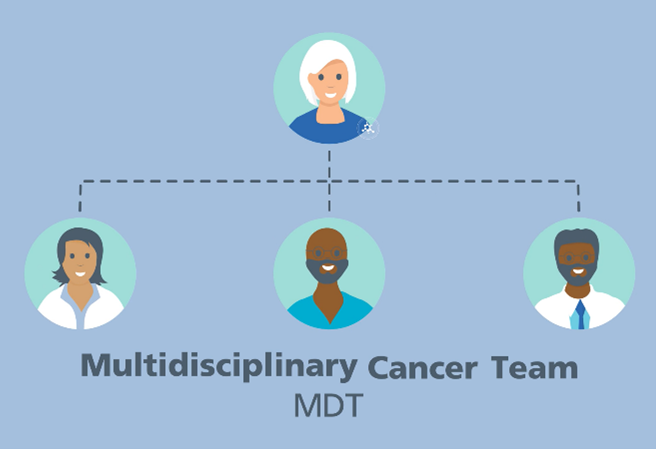
Please use the drop downs below to find out who makes up our amazing MDT Head and Neck Team here at Lancashire Teaching Hospitals:
- Consultant Surgeons
Our consultant surgeons specialise in surgery throughout the head and neck region including oral and maxilla-facial cancers and free flap reconstructive surgery, voice box cancer, sino-nasal, skull base cancer, ear cancer, salivary gland cancer and thyroid cancer.
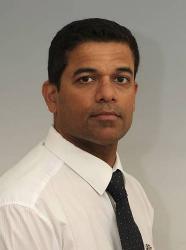
ENT General Surgeon
An ENT surgeon who specialises in the diagnosis and surgical treatment of head and neck cancer, and thyroid cancer. Mr Cardozo is also Clinical Lead for Head & Neck Cancer at Lancashire Teaching Hospitals

ENT General Surgeon
An ENT surgeon who specialises in the diagnosis and surgical treatment of head and neck cancer, thyroid cancer and skull base cancers.
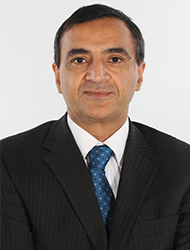
Oral & Maxillo-Facial surgeon
An Oral & Maxillo-Facial surgeon who specialises in the diagnosis and surgical treatment of head and neck cancer, including free flap tissue reconstruction of the head & neck
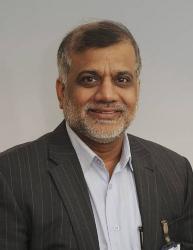
Oral & Maxillo-Facial surgeon
An Oral & Maxillo-Facial surgeon who specialises in the diagnosis and surgical treatment of head and neck cancer, including free flap tissue reconstruction of the head & neck

Oral & Maxillo-Facial surgeon
An Oral & Maxillo-Facial surgeon who specialises in the diagnosis and surgical treatment of head and neck cancer, including free flap tissue reconstruction of the head & neck
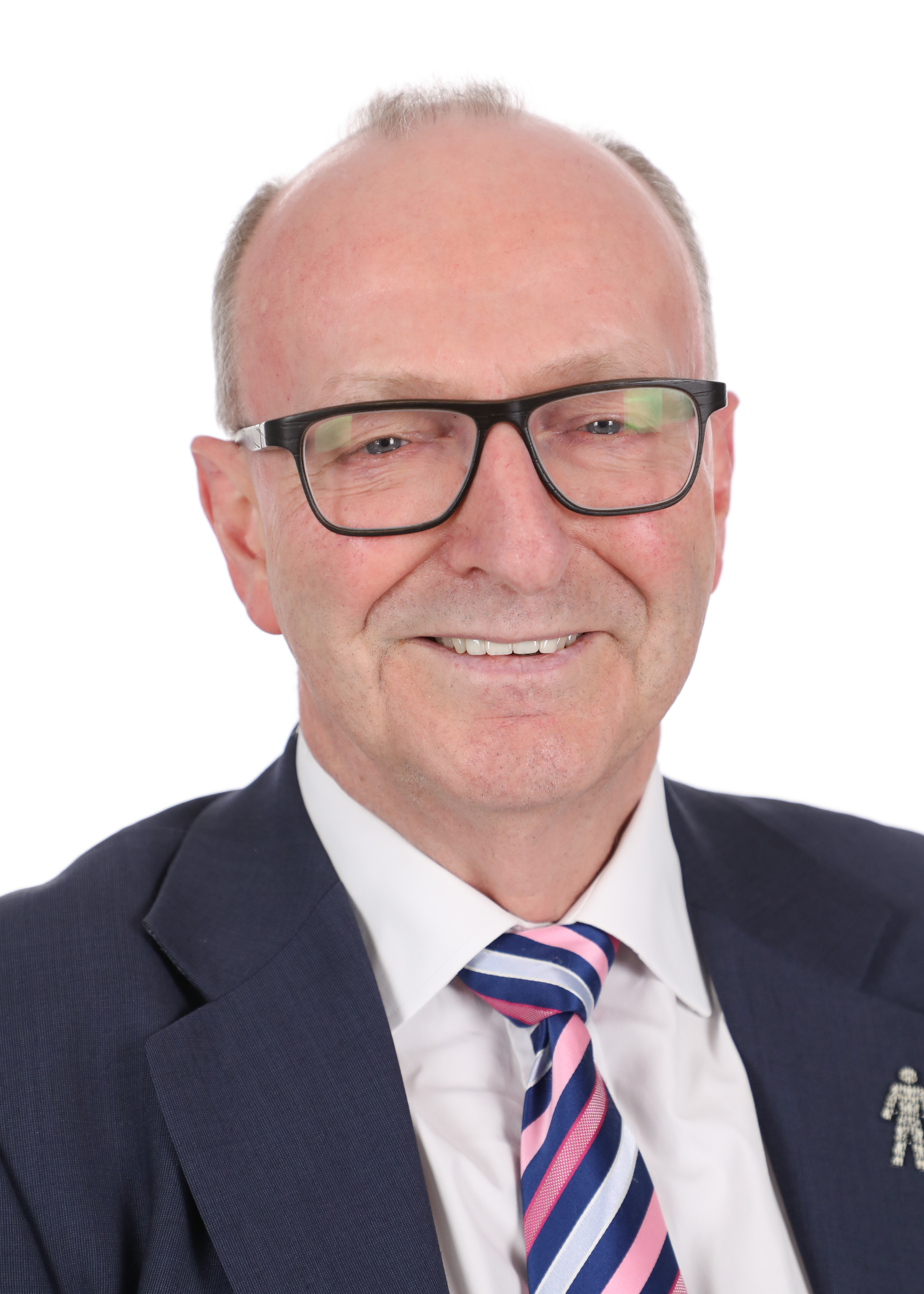
ENT surgeon
An ENT surgeon who specialises in the diagnosis and surgical treatment of sino-nasal cancer, thyroid cancer and skull base cancers.
- Cancer Nurse Specialists (CNS)
Head and Neck Cancer Nurse Specialists
These experienced professionals support you throughout your care. You will meet your Macmillan CNS on or around the time of diagnosis. They work very closely with the surgeons and the oncology teams to ensure all patients are supported throughout their journey. This may be by providing psychological support at the time around your diagnosis, specialist symptom management, placing naso-gastric feeding tubes, replacing prosthetic speech valves, tracheostomy management, or providing follow-up following after treatment. They can also sign-post onto other support such as benefits and financial advice and patient led support groups. The head and neck nurses work extremely closely with the dietitians and speech & language therapists to support you through your treatment.
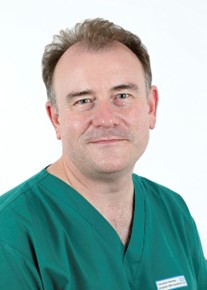
Mr Andrew Fishburn
Macmillan Nurse Consultant in Head and Neck
Andrew’s role is to provide strategic and operational leadership for the team. He also provides direct clinical care for patients and is responsible for undertaking audit and research with the CNS team. Andrew also has worked at local, regional and national level, including as Chair of the British Association of Head & Neck Oncology Nurses.
Your Multidisciplinary Cancer Care Team
Head and Neck Cancer Patient Information Leaflets
- Additional support for patients and carers
Additional support for patients and carers is offered from various organisations:
Cancer Help Preston: an independent charity dedicated to providing non-medical support for patients and carers.
Preston & Chorley Laryngectomy Association: an independent patient support group run by patients for patients and carers focussed on supporting patients and their family following laryngectomy.
The Swallows: an independent charity focussed on supporting patients following head and neck cancer diagnosis and treatment.
Butterfly Thyroid Cancer Trust: an independent charity supporting patients and their carers with thyroid cancer







